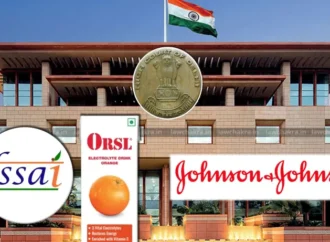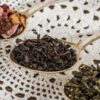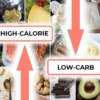 Food Manifest
Food Manifest
The house of resource for food safety.
WHO
- Home
- WHO

Survey Finds 1 in 4 Rural Tap Water Samples Unsafe0
- A to Z, Food Hygiene, Food Safety, Health & Wellness, News
- February 24, 2026
Overview A 2024 assessment under the Jal Jeevan Mission found that 24% of household tap water samples failed microbiological quality standards, raising concerns about drinking water and food safety in rural India. The Ministry of Jal Shakti reported that while 76% of samples passed laboratory tests, nearly one in four did not meet safety norms.
READ MORE
Drug-Resistant E. coli Found in Kerala Retail Chicken: Study Raises Alarm0
- A to Z, Event, Food Laws, Food Safety, News
- February 12, 2026
Key Update A new study has raised serious food safety concerns in Kerala after detecting Escherichia coli (E. coli) in 54.17% of retail chicken samples tested across the state. Researchers analysed 600 samples collected between 2019 and 2023 from Kozhikode, Palakkad, Thrissur, Ernakulam, Kollam and Pathanamthitta. The findings point to widespread bacterial contamination in
READ MORE
WHO Urges Schools Worldwide to Clean Up What Children Eat0
- A to Z, Food Hygiene, Food Safety, Health & Wellness, News
- February 5, 2026
Key Update The World Health Organisation (WHO) has released a new global guideline urging countries to create healthier food environments in schools. For the first time, the organisation recommends a whole-school approach to ensure that all food and beverages available on school premises meet nutritional standards. Rising Malnutrition Concerns Prompt Action WHO issued the guideline
READ MORE

FSSAI Launches India’s First Online Food Safety Risk Assessment Training0
- A to Z, Food Laws, Health & Wellness, News
- January 31, 2026
Key Development FSSAI CEO Rajit Punhani inaugurated a first-of-its-kind pilot training programme on food safety risk assessment, jointly developed by FSSAI and the World Health Organisation (WHO). The programme offers a structured curriculum from basic to advanced levels, aligned with international risk analysis principles and tailored to India’s regulatory needs. FSSAI aims to strengthen risk
READ MORE
FSSAI Directs Immediate Removal of Misleading ‘ORS’ Drinks From Market0
- A to Z, Event, Food Safety, Health & Wellness, News
- November 21, 2025
Key Update FSSAI has directed State and Union Territory Food Safety Authorities to immediately remove all fruit-based beverages, ready-to-serve drinks, energy drinks, electrolyte drinks, and similar products that use the term “ORS” in their brand or product names. In its 19 November order, FSSAI noted that several manufacturers still market products labelled as “ORS,” despite
READ MORE
Delhi High Court Rejects J&J Subsidiary’s Plea to Sell ORSL Beverages0
- A to Z
- November 13, 2025
Key Update The Delhi High Court on Wednesday refused interim relief to JNTL Consumer Health (India) Pvt. Ltd., a subsidiary of Johnson & Johnson, which sought permission to sell its remaining stock of ORSL-labelled beverages. The court observed that it could not allow the sale of such products as it posed a “serious public health
READ MORE
Latest Posts
-

Survey Finds 1 in 4 Rural Tap Water Samples Unsafe
- A to Z, Food Hygiene, Food Safety, Health & Wellness, News
- February 24, 2026
-

-

-

-










